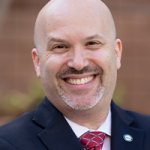DeSantis ratchets up the rhetoric against ‘weaponization’ of school book challenges • Florida Phoenix

The DeSantis administration plans to punish teachers and principals deemed to be exploiting public school book challenges to, in the governor’s view, “weaponize” Florida’s parental rights laws.
DeSantis leveled that charge Monday during a news conference in Pensacola. On Tuesday, he raised it again during a second news conference in Jacksonville, where he signed legislation restricting nonparents to one book challenge per month.
The challenges come under state law allowing anyone to complain about the content of classroom materials they deem objectionable or pornographic. The laws require removal of challenged books pending reviews that can take considerable time. DeSantis began trying to tone down the situation in February, in advance of the 2024 legislative session.
“Manny, in the Department of Education, they’re going to be holding many principals or teachers accountable who are weaponizing this,” DeSantis said Tuesday, referring to Education Commissioner Manny Diaz Jr.
DeSantis cited Sarasota County teachers who “papered over every book in the classroom, saying, ‘Oh! You can’t have books! The state’s not letting me show you books! That’s a lie. That’s not true. That’s performative.
“And so, that’s somebody who’s entrusted to teach kids putting their political agenda over the best interests of the students’ education and their access to learning. That’s wrong; that’s not going to stand in the state of Florida. So, we don’t have time for your activism; we don’t have time for your nonsense. We have a process in place to empower parents,” the governor said.
Teachers told the Sarasota Herald Tribune in January 2023 that they feared prosecution if they put students in contact with unvetted books.
The Phoenix asked the administration for an explanation of any investigations launched or punishment inflicted on school employees but hasn’t heard back yet.
Rebuttal
Florida Education Association President Andrew Spar issued a rebuttal in the form of a written statement.
“It’s important to remember that Gov. DeSantis’ full throated support is the reason why fringe groups who do not represent the majority of Floridians and often do not have students in the classroom have felt so comfortable removing books off shelves and making Florida the leader in the nation on book banning,” Spar said.

“This rule does nothing to fix the vague language that caused the issue in the first place, no matter how much the Governor and Commissioner Manny Diaz try to shift blame. Schools, teachers, and media specialists have long been asking for guidance on this issue and once again, instead of providing students what they need, Florida’s elected and appointed officials decide to play the blame game instead of taking responsibility,” Spar continued.
The American Library Association has reported that the bulk of the book challenges nationally come from conservatives.
“Recent censorship data are evidence of a growing, well-organized, conservative political movement, the goals of which include removing books about race, history, gender identity, sexuality, and reproductive health from America’s public and school libraries that do not meet their approval,” the association says in a written statement on its website.
“Using social media and other channels, these groups distribute book lists to their local chapters and individual adherents, who then utilize the lists to initiate a mass challenge that can empty the shelves of a library,” the association continues.
Florida saw 2,672 titles challenged during 2023, it says.
Meanwhile, PEN America recorded 1,406 book ban cases in Florida during the 2022-2023 school year, which accounted for 40% of the national total.
One challenge per customer
The new law (HB 1285) restricts challenges by people without children in a school district to one per month, while parents and guardians remain free to issue unlimited challenges.

That would still allow 12 challenges by nonparents per year, Diaz observed during Tuesday’s news conference. However, “Anyone who creates a cottage industry of going around the state and just creating challenges just to gunk up the system and put schools in arrears as far as reviewing these books, that person won’t be able to do it anymore,” Diaz said.
DeSantis complained that the news media have inflated challenges against classic books and biographies of important Americans while playing down other materials, including LGBTQ content, that he considers unsuitable for young kids or even pornographic.
“They’ve said, ‘Oh, you know, you’re not having Rosa Parks’ — and yet that’s on the summer reading list. Things about Hank Aaron, a book of the month from the Department of Education. So that’s clearly a bad-faith challenge, just trying to create a narrative,” DeSantis said.
“Some of those bad-faith actions have been done from people within the school system who are doing that to try to create a narrative. So, Manny will be able to hold those folks accountable because clearly there’s nothing in Florida law that would tell you to do that,” he continued.
Spar observed: “What Gov. DeSantis and Commissioner Manny Diaz always seem to forget when they attack public schools is that they have failed public schools through their punitive policies that have worsened the teacher and staff shortage and kept teacher and staff pay low. It is clear their political agenda is more important than the needs of Florida’s students.”
Comments
Post a Comment